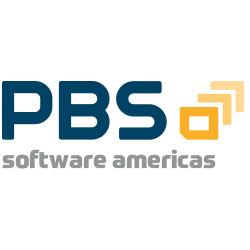SAP Accounting
Filter By
Browse By
- SAP Analytics and AI
- SAP Application Development and Integration
- All SAP Application Development and Integration
- SAP ABAP
- SAP ABAP Development Tools
- SAP ABAP Test Cockpit
- SAP API Management
- SAP BAPI
- SAP Basis
- SAP BRF
- SAP Business Application Studio
- SAP CMS
- SAP Design Studio
- SAP Development Tools
- SAP DevOps
- SAP EAI
- SAP EDI
- SAP Extension Suite
- SAP Fiori
- SAP Fiori Elements
- SAP Integration Suite
- SAP Low Code Application Development
- SAP Low Code Automation
- SAP Netweaver
- SAP Release Management
- SAP UI5
- SAP Web Application Server
- SAP Web IDE
- SAP Business Process Management
- SAP Center of Excellence
- SAP CIO
- SAP Customer Experience
- SAP Data and Data Management
- All SAP Data and Data Management
- SAP BW
- SAP BW/4HANA
- SAP Crystal Reports
- SAP Data Archiving
- SAP Data Center
- SAP Data Governance
- SAP Data Integration
- SAP Data Migration
- SAP Data Quality
- SAP Data Services
- SAP Data Strategy
- SAP Data Visualization
- SAP Data Warehouse Cloud
- SAP DMS
- SAP Document Control
- SAP EIM
- SAP ETL
- SAP ETL Tools
- SAP HANA
- SAP HANA Administration
- SAP HANA Deployment Infrastructure
- SAP HANA Studio
- SAP Master Data
- SAP Master Data Governance
- SAP MDM
- SAP Enterprise Architect
- SAP Enterprise Asset Management
- SAP ERP
- SAP Finance
- All SAP Finance
- SAP Accounting
- SAP AR AP
- SAP Asset Accounting
- SAP Billing Systems
- SAP BPC
- SAP BRIM
- SAP Cash Management
- SAP Central Finance
- SAP Controlling
- SAP COPA
- SAP Cost Center Accounting
- SAP Currency Risk
- SAP e-invoicing
- SAP FICO
- SAP Finance Automation
- SAP Advanced Financial Closing
- SAP Financial Consolidation
- SAP Financial Planning
- SAP FX Risk
- SAP General Ledger
- SAP Global Tax Management
- SAP Hyperion
- SAP Order to Cash
- SAP Payment Processing
- SAP Profitability Analysis
- SAP Rebate Management
- SAP S/4HANA Finance
- SAP SWIFT Compliance
- SAP Treasury Management
- SAP Universal Journal
- SAP Governance Risk and Compliance
- SAP Human Capital Management
- SAP Intelligent Technologies
- SAP Platform and Technology
- All SAP Platform and Technology
- SAP Business Technology Platform
- SAP Cloud
- SAP Cloud Connector
- SAP Cloud Integration Platform
- SAP Cloud Migration
- SAP Cloud Platform
- SAP Cloud Providers
- SAP Cloud Strategy
- SAP Digital Signature
- SAP Container Platform
- SAP HANA Enterprise Cloud
- SAP Digital Asset Management
- SAP Smart Forms
- SAP HEC
- SAP Digital Integration Hub
- SAP Hyperscalers
- SAP Infrastructure
- SAP Messaging
- SAP Quality and Testing
- SAP Security
- SAP Spend Management
- SAP Supply Chain Management
- All SAP Supply Chain Management
- SAP APO
- SAP Asset Management
- SAP Business Network
- SAP Digital Manufacturing Cloud
- SAP Digital Twin
- SAP EWM
- SAP IBP
- SAP Inventory Management
- SAP Label Printing
- SAP Logistics
- SAP Manufacturing
- SAP Manufacturing Automation
- SAP MES
- SAP MII
- SAP MM
- SAP MRO
- SAP MRP
- SAP Order Management
- SAP Plant Maintenance
- SAP PLM
- SAP Production Planning
- SAP S&OP
- SAP SD
- SAP SPM
- SAP Supply Chain Planning
- SAP Track and Trace
- SAP Transportation Management
- SAP System Administration
SAP Accounting: An overview and key considerations
What Is SAP Accounting?
SAP Accounting consists of two core modules that represent separate accounting books. SAP customers utilize SAP Financial Accounting (FI) for external reporting with financial statements and SAP Controlling (CO) for internal reporting purposes.
SAP Accounting enables organizations to deliver financial performance information necessary for effective decision-making by consolidating data from functional modules with powerful reporting tools. It is critical to ensure all aspects of an organization’s financials are integrated in a way that makes it easier for finance and accounting managers to access the information they need when they need it. SAP accounting modules are designed to make managing and reporting accounting data easier across organizations, teams, and roles, to support the generation of income statements, balance sheets, and cash flow statements.
For many organizations, SAP Accounting manages transactions across these core financial functions:
- Accounts payable/accounts receivable
- Bank accounting
- Cash journal
- Financial close
- Financial statements
- Fixed asset accounting
- General ledger
- Inventory
- Master data governance
- Multiple charts of accounts and parallel valuations
- Tax accounting.
Key Considerations for SAPinsiders
SAP Accounting: An overview and key considerations
What Is SAP Accounting?
SAP Accounting consists of two core modules that represent separate accounting books. SAP customers utilize SAP Financial Accounting (FI) for external reporting with financial statements and SAP Controlling (CO) for internal reporting purposes.
SAP Accounting enables organizations to deliver financial performance information necessary for effective decision-making by consolidating data from functional modules with powerful reporting tools. It is critical to ensure all aspects of an organization’s financials are integrated in a way that makes it easier for finance and accounting managers to access the information they need when they need it. SAP accounting modules are designed to make managing and reporting accounting data easier across organizations, teams, and roles, to support the generation of income statements, balance sheets, and cash flow statements.
For many organizations, SAP Accounting manages transactions across these core financial functions:
- Accounts payable/accounts receivable
- Bank accounting
- Cash journal
- Financial close
- Financial statements
- Fixed asset accounting
- General ledger
- Inventory
- Master data governance
- Multiple charts of accounts and parallel valuations
- Tax accounting.
Key Considerations for SAPinsiders
Prioritize industry-specific and business process-related compliance needs across accounting and finance requirements. SAP Accounting is an essential component of SAP ERP that provides organizations with global processes and information to account for the new standards of accounting, while maintaining flexibility to incorporate regulatory updates. SAP Accounting solutions can help organizations effectively meet global accounting and financial reporting standards to enforce compliance.
Consider opportunities to modernize accounting workstreams and provide operational visibility across virtual teams.The transition to a fully remote working environment has caused difficulties for accounting professionals, particularly as it relates to their dependence on spreadsheets, inability to access data, limited process documentation, and daily manually intensive tasks. Organizations can automate their workflows with SAP Accounting tools, freeing them to do more optimization and customization.
Leverage SAP Accounting products to enable accounting teams to do more with less. COVID-19 variants, virtual work, supply chain disruptions, inflation concerns, and the Great Resignation, represent some of the major challenges creating uncertainty for organizations across the current operating environment. With the uncertainty of this economy, accounting is required to give more up-to-date information to make smarter decisions in real time.
499 results
-

 Premium
Premium
Optimize Standard Cost Usage and Control from the PPV Variance Drilldown
Reading time: 19 mins
Learn how to optimize the tracking of purchase price variance (PPV) in your procure-to-pay business process for better control over its monitoring. Discover the limitations of the SAP ERP Financials system and the different dimensions (e.g., cost component, vendor type, and source of supply) by which you can analyze a PPV. Key Concept The purchase...…
-

How Will the Major Changes to Lease Accounting Standards (ASC 842/IFRS 16) Affect SAP Customers?
Reading time: 4 mins
By 2019, every organization must change its lease accounting practices – the ASC 842/IFRS 16 regulations will require virtually all leases to be placed on the balance sheet. This change will have ripple effects throughout the organization, reaching beyond Accounting departments to impact stakeholders and investors. Therefore, businesses with any leases need to prepare for…
-

 Premium
Premium
Use Functional Areas to Enhance Your Cost-of-Sales Reporting
Reading time: 10 mins
Learn the definition of cost-of-sales reporting and how it is distinguished from period-based reporting. Follow the steps to define and derive functional areas to facilitate cost-of-sales reporting. Discover the benefits of cost-of-sales reporting by functional area and how it contrasts with other methods of cost-of-sales reporting that are more commonly used in the SAP system...…
-
-

 Premium
Premium
Optimize Your Corporate Payment Transactions with SAP In-House Cash
Reading time: 13 mins
Find out about the main organizational units of SAP In-House Cash and understand the three core payment processes this component supports, including their differences. Learn the business configuration of the application and the functional differences that were introduced with SAP ERP. Follow the step-by-step technical implementation of Application Link Enabling to enable Intermediate Document communication...…
-

 Premium
Premium
Transaction Manager Supports Sarbanes-Oxley Compliance
Reading time: 18 mins
Managing financial transactions with the right balance of functionality, flexibility, security, and efficiency is the ultimate goal of today’s competitive economy. An infrastructure that facilitates straight-through processing (STP) can best support these goals and provide the transparency that Sarbanes-Oxley compliance demands. SAP provides that infrastructure with Transaction Manager, a component of Treasury and Risk Management....…
-

 Premium
Premium
How Proposed Lease Accounting Changes Will Affect Your SAP System (And What You Can Do About It)
Reading time: 6 mins
ManagementSAPexperts/FinancialsWhile the switch to International Financial Reporting Standards (IFRS) is getting all the attention, the two boards that govern US and international accounting rules are mulling another change that could have a big impact on businesses that lease equipment. If passed, the proposal could add significant complexity to the way leases are accounted for at...…
-

 Premium
Premium
How to Configure and Retrofit Depreciation Areas When You Add a New Depreciation Area in a Live Site
Reading time: 13 mins
Learn how to add or retrofit depreciation areas with a specific depreciation key. See how you can use a substitution rule and worklists when a new company code with a specific legal requirement on depreciation calculation and reporting is rolled out in the same country with an already existing company code. You need to have...…
-
-

 Premium
Premium
Use SAP ECC 6 to Fulfill Accounting Requirements for Assets Impairment
Reading time: 12 mins
FinancialsLearn some configuration tips to help you overcome challenges in recoding the impairment loss on assets in an SAP system. Key Concept Asset impairment is a key requirement of various legal regulations to ensure that an organization’s financial statements show the realistic value of its assets. Proper accounting of asset impairment in the books is...…
-

 Premium
Premium
Dealing with Israel? Understand How the Cashier System Works
Reading time: 29 mins
Leverage the country-specific functionality of your SAP system for efficient accounting and compliance with local laws and regulations. Key Concept It is not a common practice in most countries to receive post-dated (deferred) checks from customers. In Israel, however, this is a common business practice. The Israeli (IL) Country Version of SAP ERP provides a...…
-

Accounting & Finance Expands Its Influence
Reading time: 7 mins
Accounting & Finance Expands Its Influence Across the Enterprise Utilities that are publicly traded companies are subject to various audits under the Sarbanes-Oxley (SOX) Act. Beyond recordkeeping and reporting, accounting & finance deliver an important strategic function across the enterprise. For UGI Utilities, a wholly owned subsidiary of UGI Corp., continued transformation is a key…
Become a Member
Unlimited access to thousands of resources for SAP-specific expertise that can only be found here.
Become a Partner
Access exclusive SAP insights, expert marketing strategies, and high-value services including research reports, webinars, and buyers' guides, all designed to boost your campaign ROI by up to 50% within the SAP ecosystem.
Upcoming Events
Related Vendors
Your request has been successfully sent


